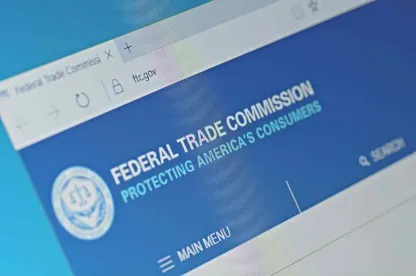On June 10, the Federal Trade Commission (FTC) filed an amended complaint for civil money penalties and other relief under Section 5 of the FTC Act prohibiting “unfair or deceptive acts or practices” and Section 521 of the Gramm-Leach-Bliley Act (GLBA) prohibiting the use of fraudulent statements to obtain consumer information. Setting aside the substance of the allegations, the amended complaint is informative because while the initial complaint sought consumer redress under Section 13(b) of the FTC Act, the Supreme Court’s recent unanimous decision in AMG Capital Management foreclosed this avenue to consumer redress for the FTC, and thus the amended complaint removes that reference while otherwise replicating the substantive allegations of the initial complaint. Further, in a creative side-step to its Section 13(b) predicament, the FTC claims authority to obtain civil penalties under the GLBA because it empowers the FTC to enforce it “in the same manner and with the same power and authority as the [FTC] has under the Fair Debt Collection Practices Act [FDCPA].” 15 U.S.C. § 6822(a). In 2010, the Dodd-Frank Act amended the FDCPA stating that violations may be enforced “in the same manner as if the violation had been a violation of a Federal Trade Commission trade regulation rule.” 15 U.S.C. § 1692l(a).
The amended complaint seeks a permanent injunction to prevent future violations, rescission or reformation of contracts, the refund of monies paid, or other relief necessary to redress injury to consumers, and monetary civil penalties.
Putting it Into Practice: It is apparent that the FTC will continue to push solutions for monetary redress in the wake of AMG Capital Management. While the success of its new theory is likely to be tested in court, companies and individuals in the FTC’s crosshairs ought to remain vigilant against future FTC litigation and enforcement efforts.





 />i
/>i
